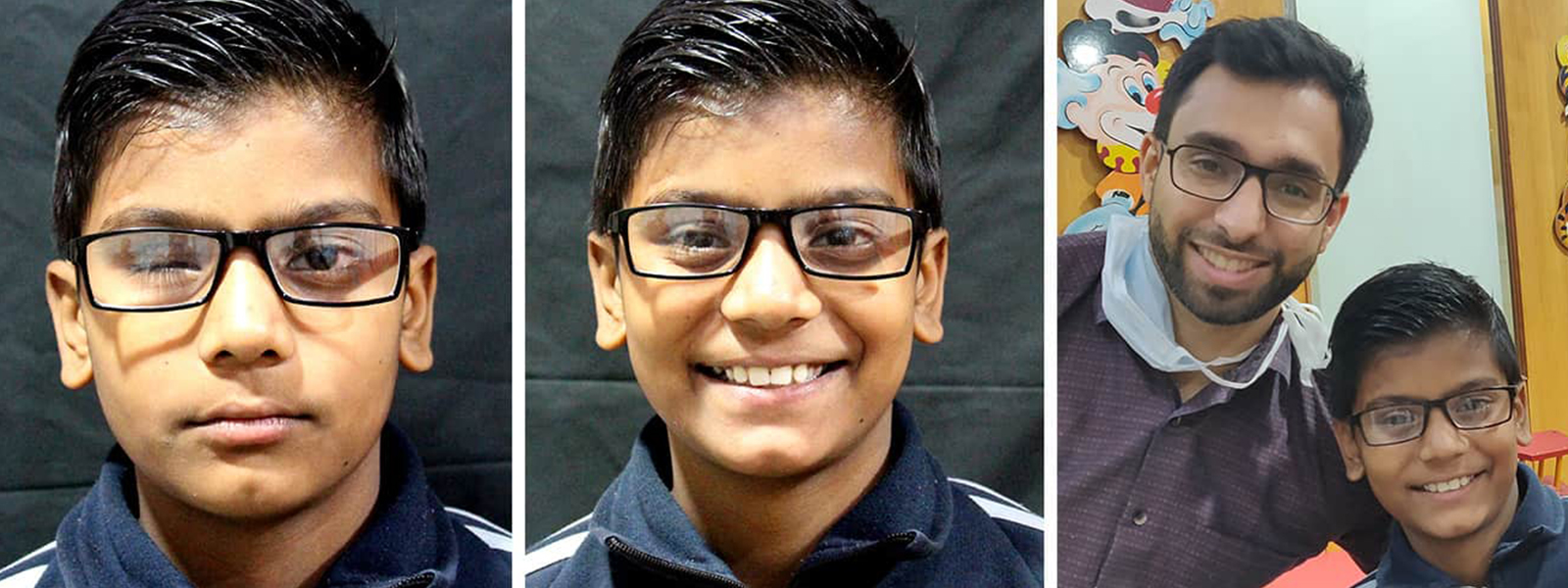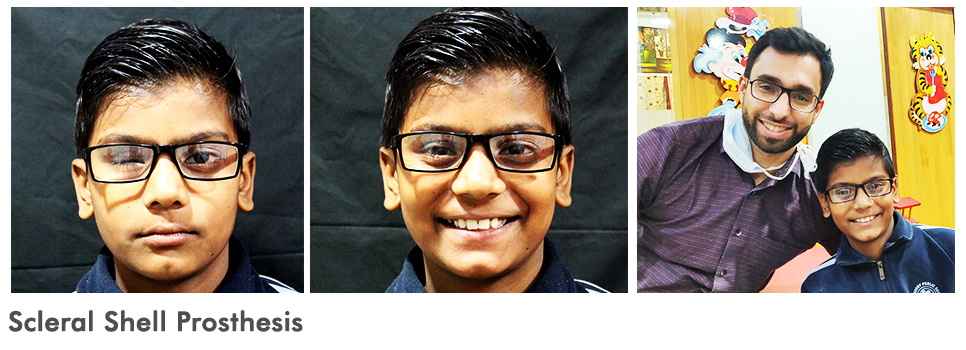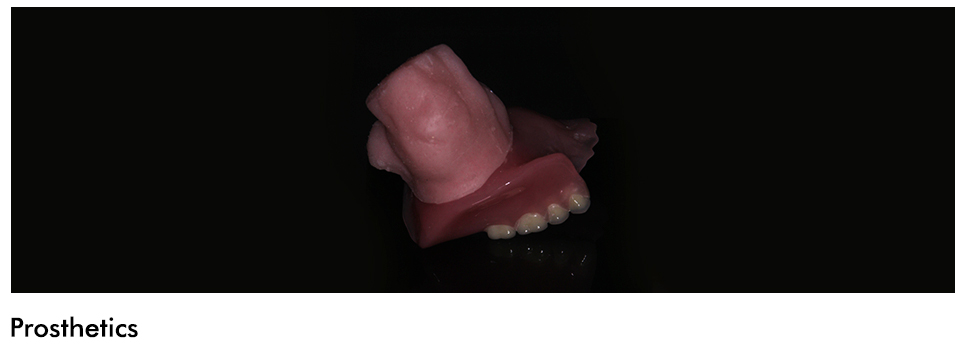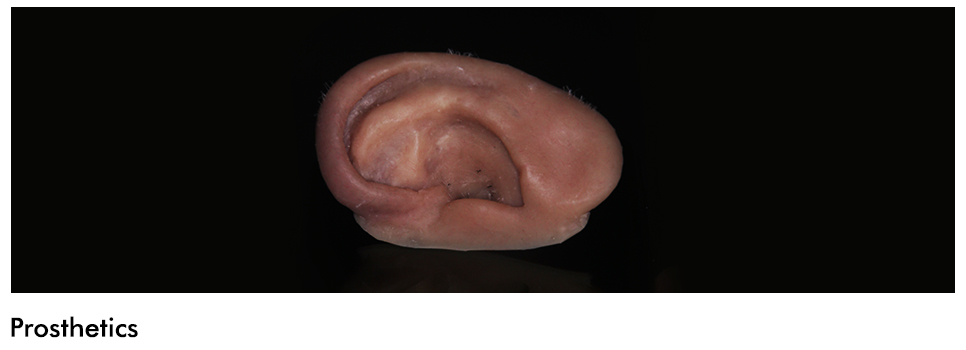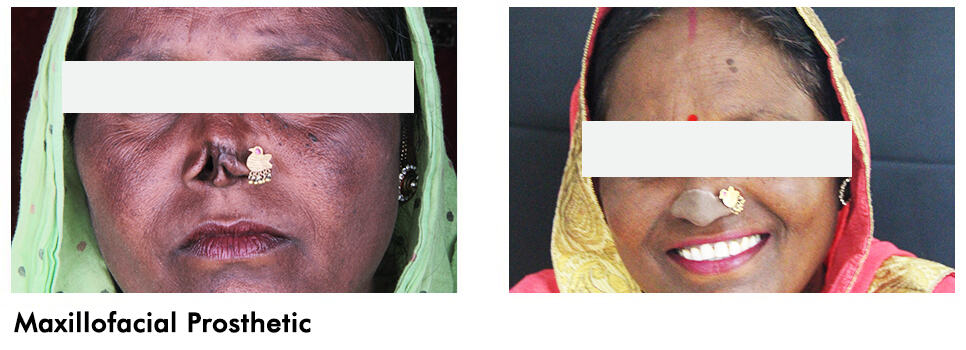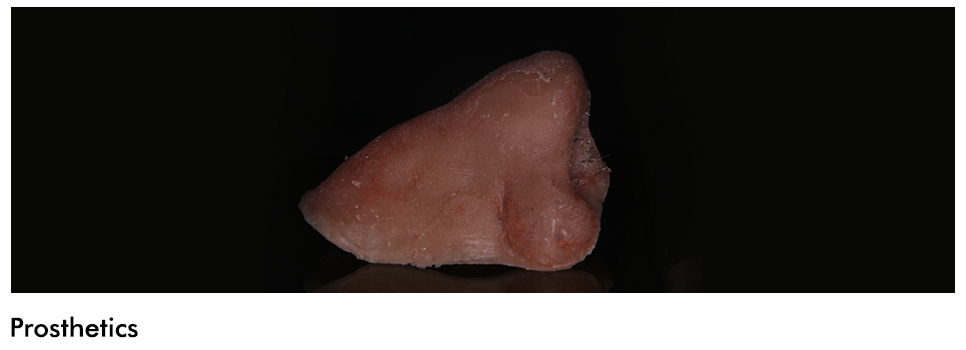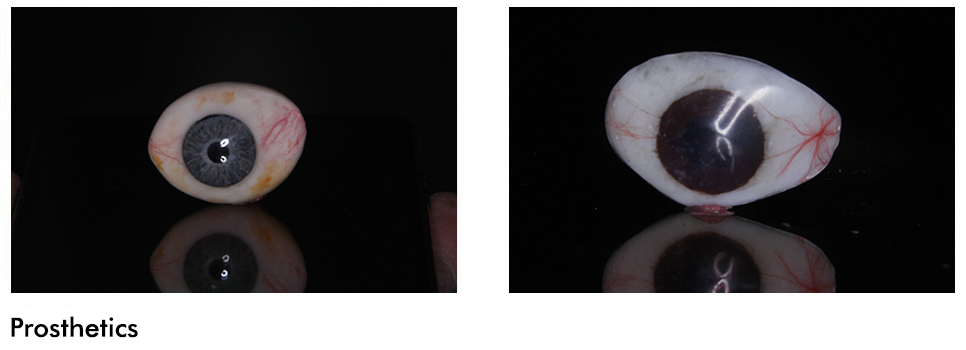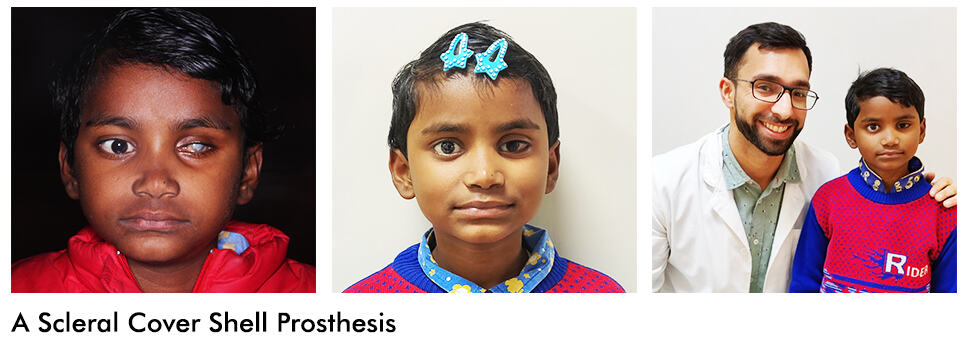Maxillofacial prosthodontics is a specialty of dentistry which deals with the rehabilitation of patients with acquired and congenital defects of the head and neck region. These range from minor to major functional disabilities combined with cosmetic disfigurement and anaplastology is aspecialisedbranch of medicine dealing with the prosthetic rehabilitation of an absent, disfigured, or malformed anatomically critical part of the face or body.
With today’s silicon materials, it is possible to make a prosthesis so lifelike that it is difficult to tell it apart from the rest of the body – whether it be an eye , ear, nose, breast, finger.
Rehabilitation of patients with head and neck disabilities is difficult and requires close interactions among several health science disciplines. The Maxillofacial Prosthodontist is the primary person involved in many facets of patient care and is, therefore, the individual who is in the best position to coordinate the efforts required in this complex rehabilitative process. Members of the team include oral and maxillofacial surgeons, plastic surgeons, radiologists, oncologists, head and neck surgeons, neurosurgeons, otolaryngologists, periodontists, orthodontists, social workers, speech therapists, occupational therapists, among others.
Dr Sanjay Kalra has been into dental practice since the last twenty-eight years. He has been a pioneer in bringing about the latest technologies in dentistry to North India. Dr Sanjay and Dr Ruchir Kalra have initiated Countenance: A centre for Maxillofacial Rehabilitation.
Countenance, meaning a person’s face or facial expression, is an initiative for rehabilitation of patients suffering from:
- Birth defects
- Trauma
- Cancer
Dr Ruchir Kalra, has received training in maxillofacial rehabilitation from Glasgow, Scotland.
What we do
The fundamental objective of this Center is to provide a prosthodontic reconstruction for those patients with orofacial defects resulting from birth defects, trauma, or following treatment for head and neck cancers. Defects of this type can lead to altered function and an inability to participate in normal activities, which has a negative impact on the patient’s psychosocial behaviour.
We campaign for social change. Our face equality campaign aims to promote a society in which people are treated fairly and equally. We also campaign for more positive and informed attitudes, behavior, languages and portrayals of people with disfigurement in the media, advertising and talks.
The different prosthesis we offer
- Ear
- Breast
- Implant Supported Finger Prothesis
- Eye
- Nose
- Obturator
- Overdentures
For our patients: Top tips to become socially confident
Is someone staring?
Try one of the following:
- Make eye contact
- Smile or raise an eyebrow in acknowledgement
- Distract them through casual conversation, ‘hi isn’t it warm today?’ ’Sanchit carries his teddy bear everywhere; does your daughter have a special toy too?’
- If they continue to look, say assertively, I’d prefer it if you didn’t stare at me’ say in a joking way ‘I’ve obviously attracted your attention!’
If someone asks a question about your appearance
Depending on how you feel:
- Give a brief statement and move the conversation on, I was bitten by a dog when I was younger. It was a long time ago and I don’t like to talk about it now. So how did you meet Rahul?’
- Talk in more general terms, ‘I have a birthmark but it doesn’t cause me any pain’
- If you are happy to discuss more personal details say, ‘I was burned when I was younger. Surgery has been pretty successful but the scars have taken a long time to settle down’.
If you overhear someone making a remark about you
Depending on how you feel:
- Give them a firm, assertive look to let them know you have heard what they said
- Say, ‘very original’
- Say, ‘actually my name is…’
- Say, ‘does my face bother you? It doesn’t bother me’
- Say, ‘I would much rather you speak to me directly.’

